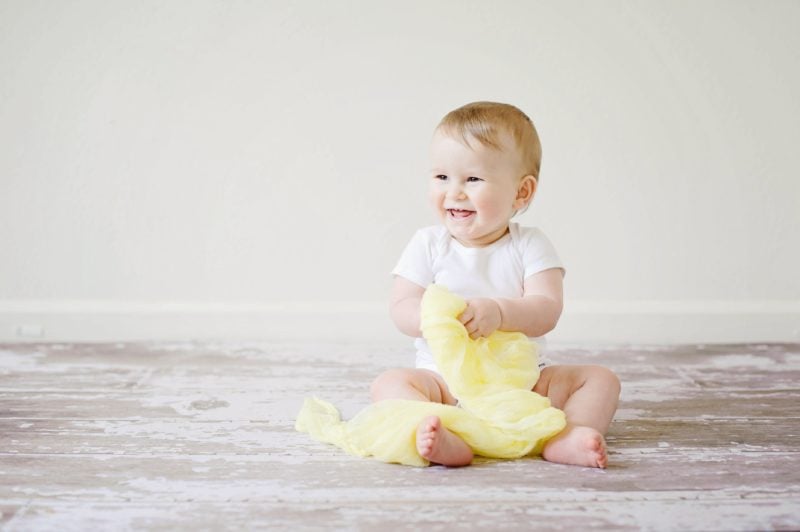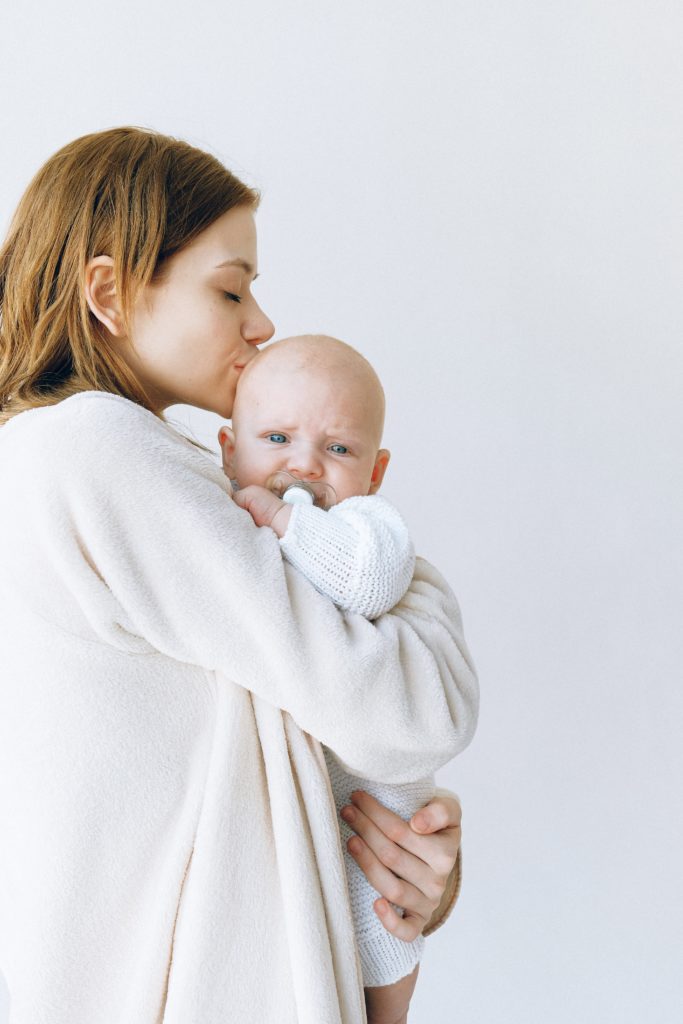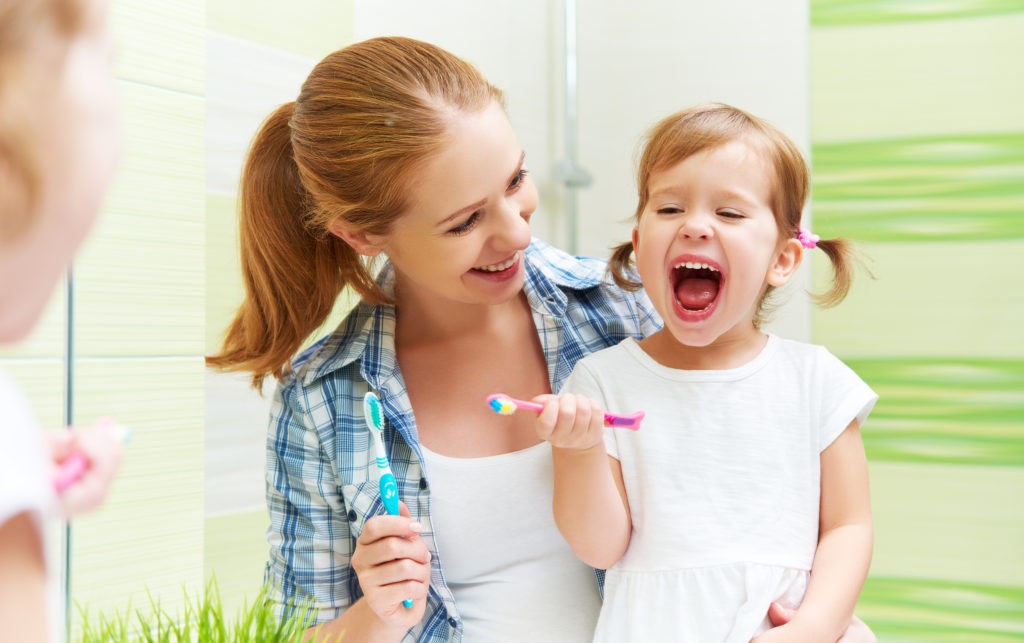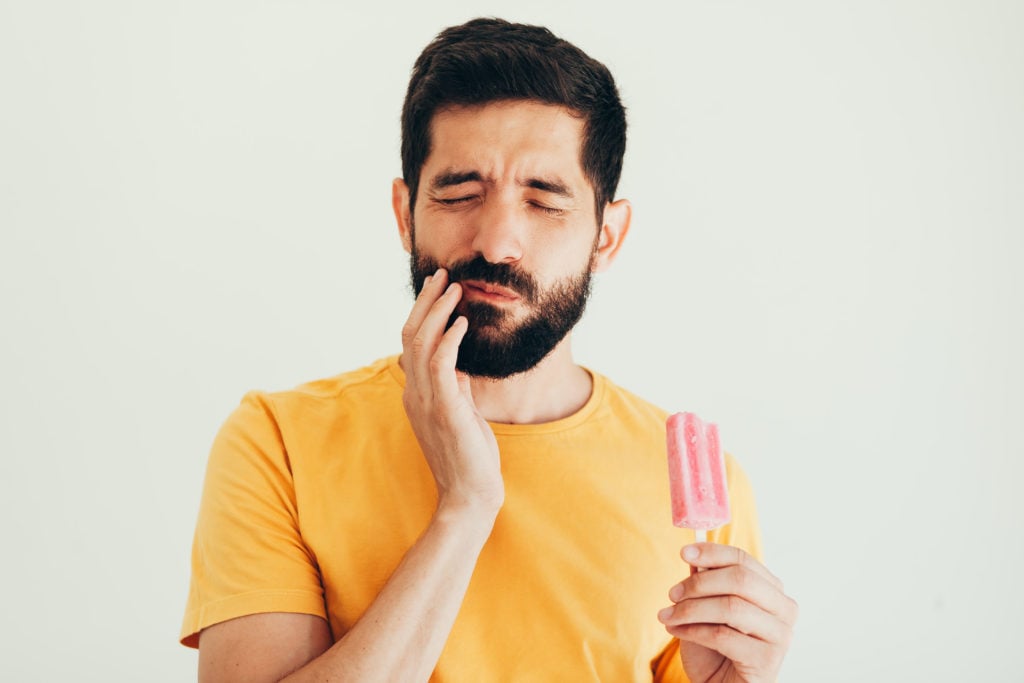Baby teeth typically begin to appear around 6 to 12 months of age. In some babies, it is completely normal for this to occur earlier or later than this time. Most children will have a full set of 20 baby teeth by the time they are 3 years of age.
When baby teeth start coming in, your baby may be grumpy and fussy. They may drool, wake up frequently at night, or lose their appetite. You can help sooth the soreness of the gums by gently rubbing the gums with a clean finger, a small cool spoon or hard teething ring or a cool gauze pad. Allowing your baby to munch or suck a cool wet washcloth may also help soothe and massage the sore gums.
Over-the-counter numbing gel is not recommended for use in children under the age of 2. There is a risk of the child developing a serious, sometimes-fatal condition involving the red blood cells. Therefore, natural remedies are the best and the safest way to go.
Diarrhoea, rashes or high fevers are not normal for a teething baby. If your baby shows these symptoms, you should seek the advice of a doctor. If you are unsure or worried, you can seek further advice by calling Victorian Maternal and Child Health Line service on 13 22 29.
Remember that the teething phase too will pass and your baby will be their happy self soon. Just hang in there!
Why is Caring For Baby Teeth Important?
- Untreated decay in baby teeth can lead to hospitalisation, life-threatening acute infection in young children.
- Baby teeth are very important to your child’s physical and mental health and development. They help him or her chew well, speak and smile with confidence.
- They also hold space in the jaws for permanent teeth that are growing under the gums. When a baby tooth is lost too early, this causes problems with the health and alignment of adult teeth and jaw. This can lead to the child needing surgery later in life to expose adult teeth stuck in the jaw and needing lengthy expensive braces treatment.
When Should I Take My Child to the Dentist?
The Australian Dental Association guidelines are that every child should have visited the dentist by 12 months of age and should have a dental check-up twice a year. Besides checking for cavities and other problems, the dentist can show you how to clean the child's teeth properly, how to handle habits like thumb sucking, detect early problems in jaw and tooth alignment.
In September 2017 The Age reported, “dental conditions are the leading cause of preventable hospitalisations for children, ahead of asthma and ear, nose and throat infections.” This outlines the importance of ensuring your child's teeth and gums stay healthy from the very start.
A dental office is often an overwhelming place for a child with unfamiliar sounds, taste and equipment. So it is essential to get positive, regular exposure at an early age. This helps prevent dental problems or detect them early. If detected too late dental problems are complicated to fix. This leads to negative dental experiences and a lifetime spent with dental problems and avoidance of proper care.
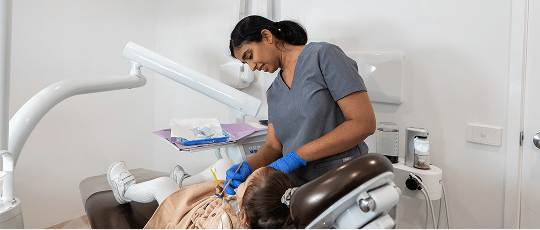
How Much Does Taking My Child to a Dentist Cost?
- This visit is Medicare bulk billed for eligible families in Australia.
- If you are not eligible for Medicare bulk billing, the visit is rebated with private health insurance.
- If you do not have private health insurance minimal out of pocket cost (less than $40) will apply.
What Happens at My Child’s Dental Visit at Mulgrave Dental Group?
When your child visits our dental clinic, they will get to know our team (including our friendly tooth fairy Jacinta) and build familiarity with our tools and surroundings. Our team at Mulgrave Dental Group is highly trained to treat and manage young children.
We go through a familiarisation visit. We focus on the tell-show-do technique for every child and educate on prevention of future dental problems. This is recommended by Australian and New Zealand society of paediatric dentists (ANZPD).
Studies have shown that the children of families who visited the dentist for regular preventive care had significantly better dental health as adults.

We’re Committed To Protecting Little Smiles
Early dental care is key to setting your child up for a lifetime of healthy smiles. At Mulgrave Dental Group, we specialise in making dental visits fun, stress-free, and informative for both children and parents. Our gentle, experienced team is dedicated to providing a positive experience for your little one, ensuring their teeth and gums stay healthy from the very start.
Book your child’s dental visit today. The Australian Dental Association recommends that every child visit the dentist by by 12 months of age and should have a dental check-up twice a year.
At Mulgrave Dental Group, we’ve been the trusted family dentist in Mulgrave and the surrounding suburbs for over 40 years. As a long-standing part of the Australian community, our primary focus is to educate, inform, and empower our patients.
Smile Makeover Client
Your Healthier Smile Awaits
Whether you're looking to improve your dental health or enhance your smile, we're here to help. Book an appointment with Mulgrave Dental Group today!
Book Now